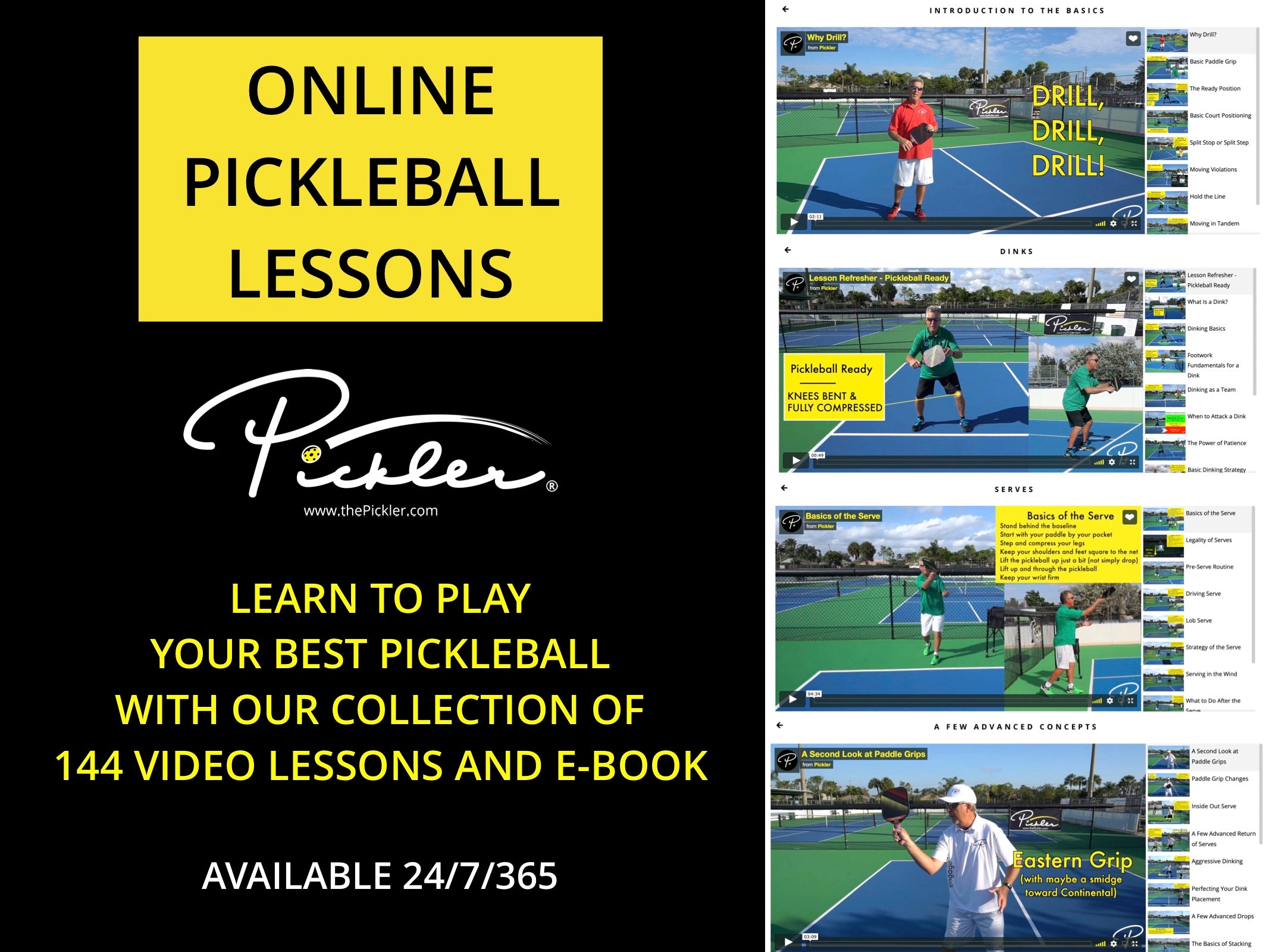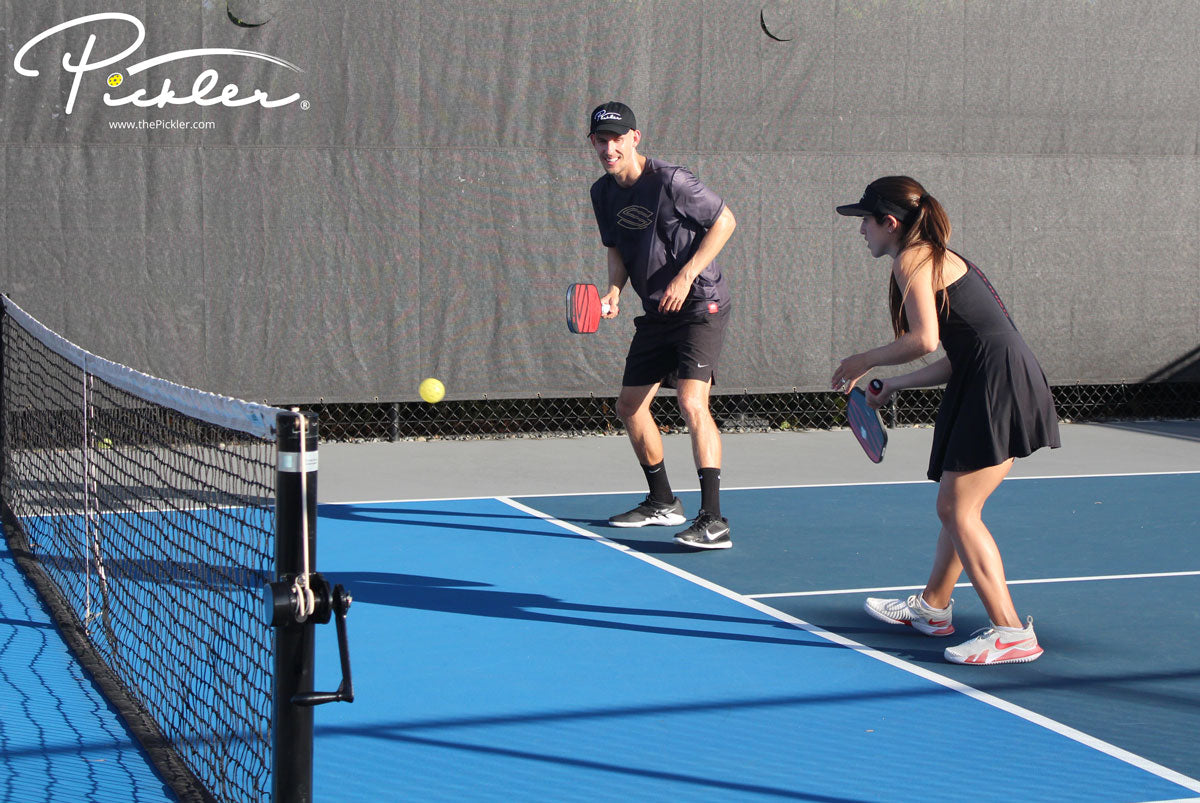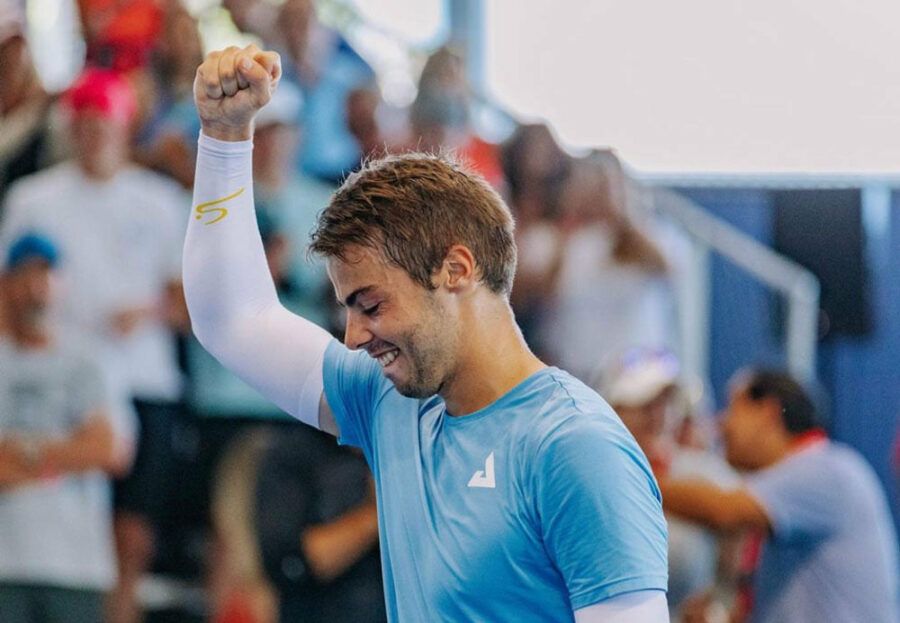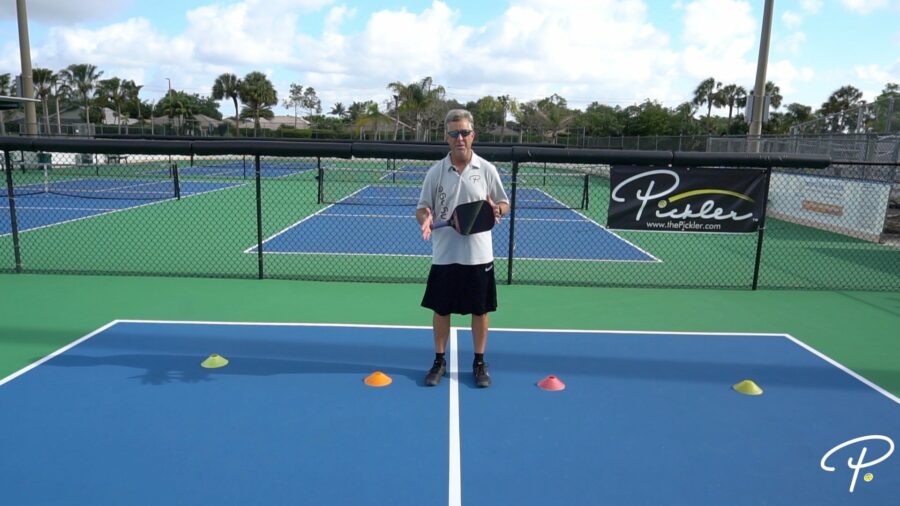Much of doubles pickleball happens at the Non-Volley Zone line. Pickleball players try to get to the Kitchen line and then hold their feet firmly behind the Kitchen line, as one of pickleball’s unique rules is that no volleys are permitted in the Kitchen.
One of the hardest decisions when playing pickleball at the Kitchen line is when to take shots—more specifically, dinks—out of the air (i.e., hit a volley) versus when to let the pickleball bounce. This pickleball blog is designed to help you make this decision—when to volley or when to bounce those dinks—and win more dink battles on the court.
When to Take the Pickleball Out of the Air
Generally speaking, taking the pickleball out of the air is preferable because you take time away from your opponents between shots, and taking time away is one way to induce errors from your opponents. Also, by volleying the pickleball, you will:
- Hit the pickleball before it has an opportunity to take a “funny” bounce due to any spin;
- Be less likely to get jammed by a pickleball that is hit toward your feet;
- Be better able to hold the Non-Volley Zone line, which avoids giving your opponents more space to work with (which would give your opponents more options for shots to hit, and give you a disadvantage on the pickleball court) and generally makes dinks easier for you, as you will have a shorter distance to hit your shots; and
- Generally need less steps and less movement (which means less chance of an error by you).
Despite these advantages and benefits of taking the pickleball out of the air, it is not advantageous or beneficial in every circumstance.
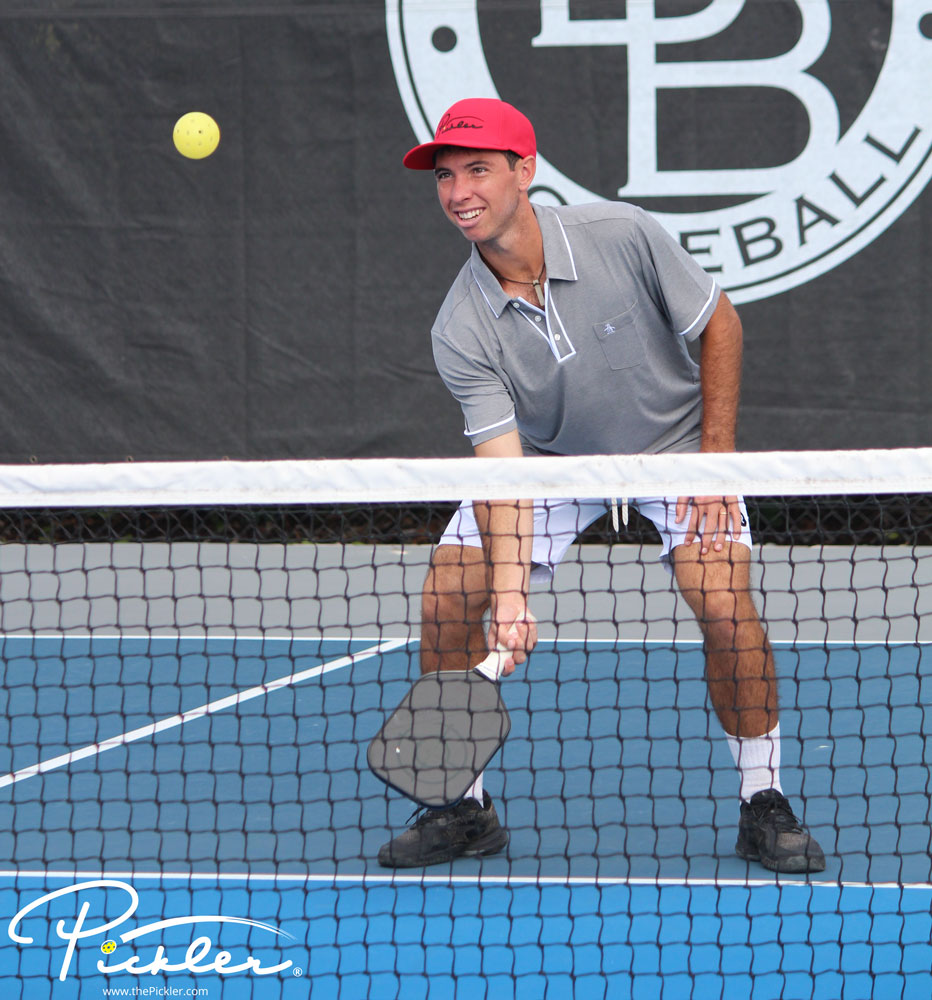
To determine when you should volley dinks and take the pickleball out of the air, stand in your ready position at the Kitchen line. Compress as if you are about to strike a volley and extend your pickleball paddle comfortably out in front of your body. To note, this extension is meant to be comfortable with your elbow slightly bent. This slight bend gives you room to finish your shot, as well as enough stability to hit your dink with power and purpose. If you extend fully with your elbow locked out, you will be stretched to the max and you will likely not be comfortable. This over-extension will lead to dead dinks—in other words, dinks that hit the frame of your pickleball paddle or otherwise hit your paddle without any power or other action, and instead “flub” off of the end.
To summarize, take dinks out of the air when you can comfortably reach them with your paddle. To help you maximize the number of dinks and shots that you can take out of the air comfortably, get low by bending your knees (which allows you to reach more shots lower in their trajectories) and moving your feet efficiently around the Kitchen line. But, remember that if you start to reach for the pickleball, consider letting the pickleball bounce.
And, lastly, to note, a volley or taking the pickleball out of the air does not necessarily mean an attacking shot. Taking the pickleball out of the air could be a neutral or even defensive shot back to your opponents.
When to Let the Pickleball Bounce
Again, despite the advantages and benefits of taking the pickleball out of the air, it is not advantageous or beneficial in every circumstance. There are some circumstances where it is better to allow the pickleball to bounce and then hit the pickleball off of the bounce. These circumstances include:
- If you are over-extended. Remember, if you are over-extended, you will have no power, have no ability to do anything with your shot, and be more likely to make an error. So, if you are over-extended and reaching for the pickleball, stop what you are doing, let the pickleball bounce, and hit the pickleball after it has bounced.
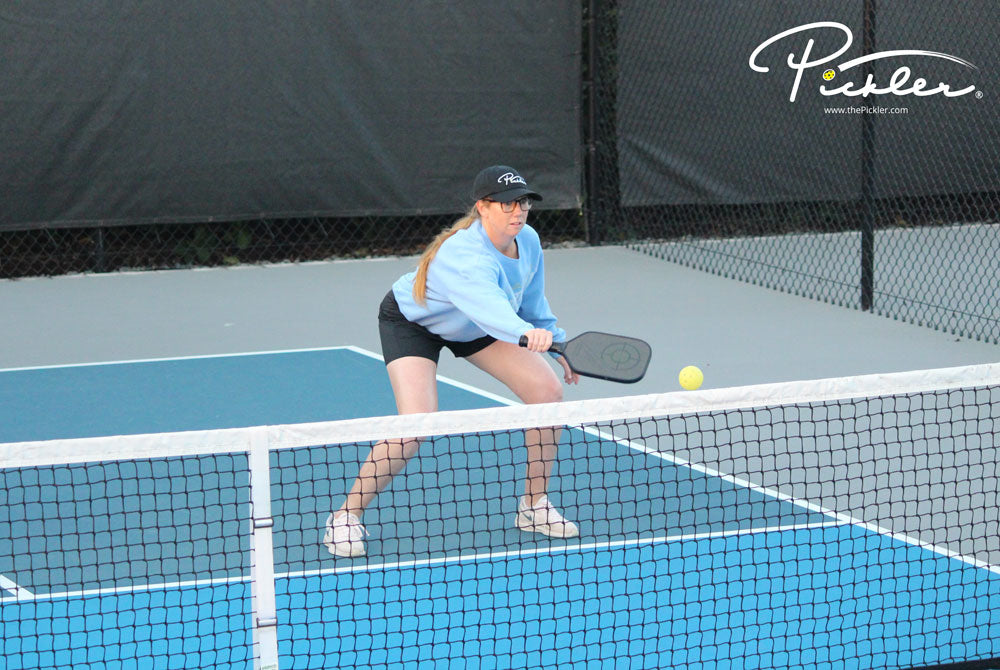
- If the shot will have a high apex off of the bounce. If your opponents’ shot will have a high apex, then you may be able to hit a more aggressive or offensive shot by letting the pickleball bounce (as opposed to taking it out of the air). The higher the pickleball sits at or above the net, the more aggressive and offensive you can be.
In these circumstances, when you are looking to let the pickleball bounce, you have two options:
- Hold the Kitchen line and hit a short hop – If you can hold the line, consider taking the shot off of the short hop, or immediately off of the bounce. By taking the pickleball relatively quickly after the bounce, you can still accomplish the goal of reducing your opponents’ time to react to your shot.
- Take a step back and hit the pickleball at its highest point – In the alternative, you could step back to give the pickleball more room to travel to its apex (in other words, its highest point). Then, you could hit a more aggressive shot when the pickleball is at its highest point. However, if you decide to step back off of the Kitchen line, be sure to immediately step back in after you hit your shot. It is important that you step back up and hold the Non-Volley Zone line.
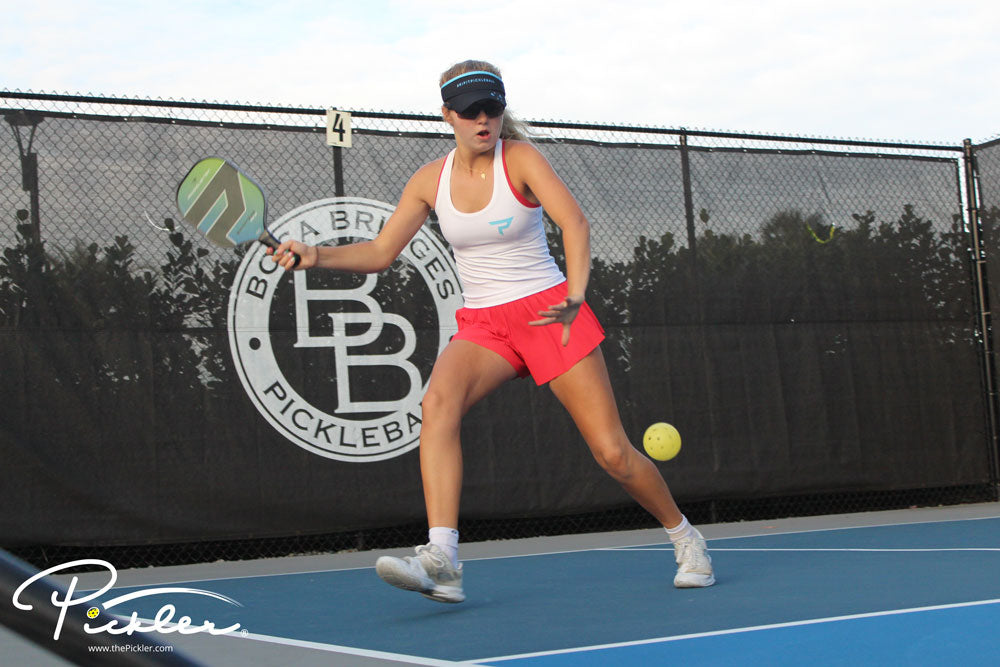
The better you are at deciding—both quickly and correctly—whether to hit a volley or let the pickleball bounce, the more dink battles you will win on the pickleball court. To help you in this decision, you generally want to take the pickleball out of the air with a volley for a number of reasons, which include taking time away from your opponents and forcing them to make more errors. However, this is not an absolute in every circumstance. If you are over-extended or can be more offensive after the pickleball has bounced, then let the pickleball bounce.
WANT MORE PICKLEBALL TIPS AND STRATEGIES?
Want more dinking strategies? Learn more.
Plus, if you want more pickleball tips and strategies on every aspect of your pickleball game, check out Pickler’s online video lesson collection called My Pro Pickleball Coach. My Pro Pickleball Coach is a fraction of the price of one clinic or even one lesson, and features over 140 video lessons (over 7 hours of instruction!), as well as a corresponding e-book. These online video lessons are available on demand 24/7 and breakdown every aspect of the sport of pickleball, including pickleball drills, strategy, and advanced concepts, so you will play your best pickleball.
